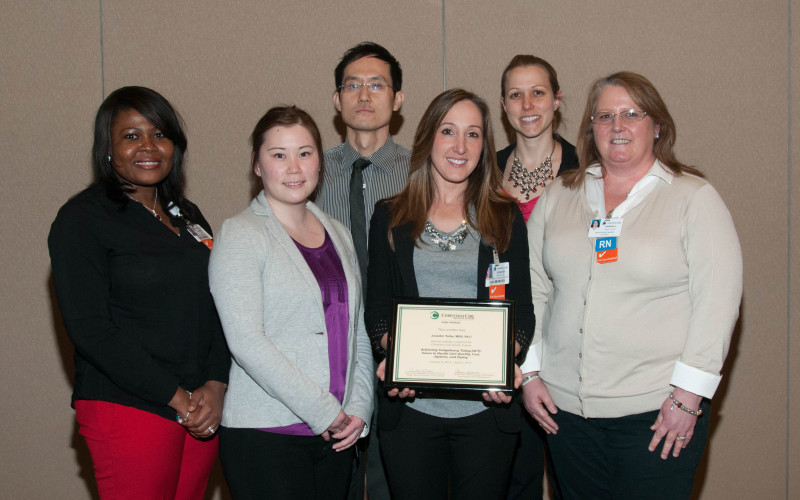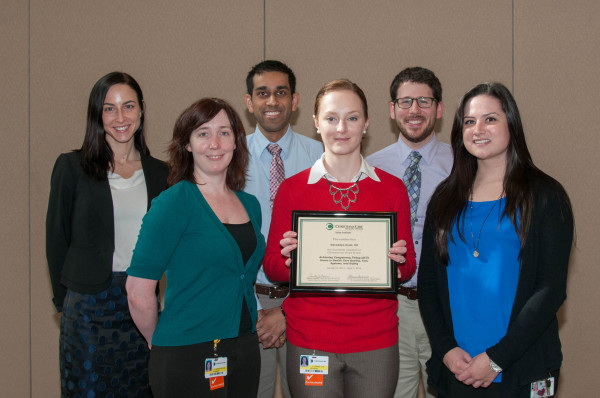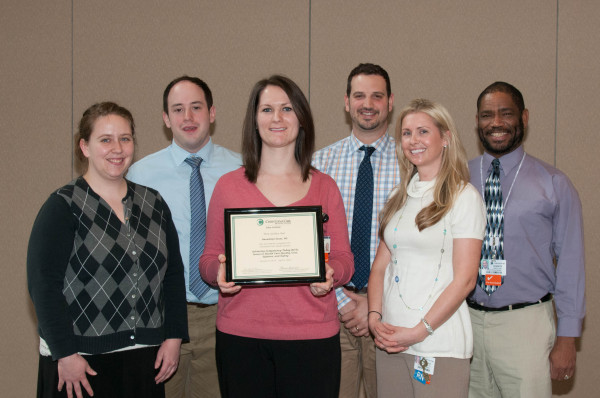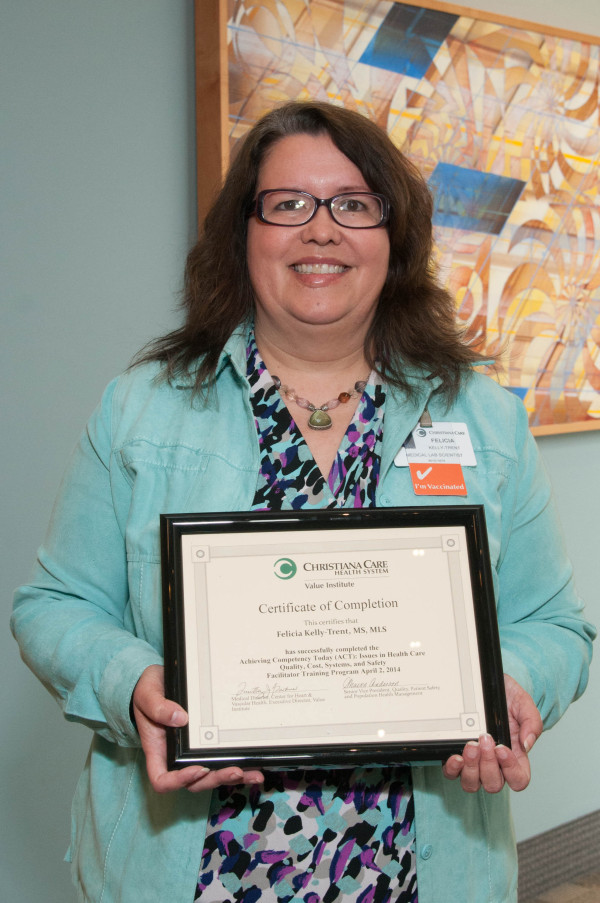Achieving Competency Today graduates learn to view systems through ‘a different lens’

Twenty-four colleagues gained interdisciplinary improvement science knowledge and tools to enable them to start applying their skills in their daily work as graduates of the 17th class of the Value Institute Academy Achieving Competency Today (ACT) course.
“These skills allow us to step back and view practices and processes through a different lens — a lens that will cause us to re-examine why we do things the way we do, and to have the courage to explore new and more effective ways that create value for the patients we serve,” said Robert J. Laskowski, M.D., MBA, president and CEO of Christiana Care.
The 12-week, graduate-level ACT course:
- Offers learning opportunities through rapid-cycle tests of change.
- Teaches systematic application of improvement science principles for frontline health and allied health professionals.
- Promotes interprofessional learning and application of a systematic approach to improvement through diverse team collaboration on data-driven improvement projects.
- Fulfills multiple requirements of the Accreditation Council for Graduate Medical Education clinical learning environment requirements for resident physicians.
In four teams, participants developed rapid-cycle tests and developed plans that are handed off to champions at Christiana Care. Learning from what worked in the projects and what needs additional testing has been integrated into many ongoing improvement efforts at Christiana Care, leveraging the work of the ACT teams in subsequent efforts. Each team had a dedicated skilled facilitator representing Academic Affairs, the Virtual Education and Simulation Training Center, the Value Institute Center for Quality and Patient Safety, and Pathology and Laboratory Medicine. Team facilitators included Teri Foy, MEd, RT, LaRay Fox, MEd, CNMT, Loretta Consiglio-Ward, MSN, RN, Felicia Kelly-Trent, MS, MLS and Carol K. Moore, MS, FNP-BC.

Team 1: Sleep Satisfaction From A To Zzzzzzz
This team developed a nightly sleep rounds checklist to be used by nurses on 3D, in order to improve the perception of sleep quality for patients on their unit. Sleep rounds were to be completed nightly around 10 p.m. Although the team did not meet their target, they had some positive results when comparing partially completed to fully completed sleep rounds.

Team 2: Supersize This … BMI ≥ 30? Refer!
Focusing on the crisis of obesity in the U.S. and the fact that Delaware ranks third in the nation for highest obesity rates, this team implemented interventions at the Adult Medicine Office (AMO) to improve the communication between internal medicine residents and their patients with BMI ≥ 30 and related referrals. A weight management resource list was given to patients who had a BMI ≥ 30. The list, compiled by the ACT team, provided the patient with concise information pertaining to local nutrition, weight loss and medically managed programs.

Team 3: Patients Is a Virtue: Improving The Patient Experience
This team examined the concept of patient experience and designed an intervention to increase patient involvement in bedside shift report on the medical patient care unit 6E within two weeks. Patient involvement increased from 61 percent to 89 percent following the implementation of the standardized bedside shift report template and checklist. Impact of overall patient satisfaction is to be determined with subsequent HCAPHS survey results.
Team 4: Timing Is Everything: First Dose Stat!
This team sought to reduce delays in first-dose antibiotics from time of order to time of administration in the Medical Intensive Care Unit (MICU) by 30 percent within two weeks. The team identified that there was not a uniform interpretation of the meaning of STAT vs NOW orders across all disciplines and prescribers using Computerized Physician Order Entry (CPOE), which was identified as a contributing factor to delays in timely antibiotic administration for critically ill patients. In consultation with stakeholders and MICU providers and staff, the team designed an intervention to promote prescribers selecting STAT order priority for first doses of antibiotics to be administered to patients in the MICU. As a result of the project, the percentage of STAT orders for vancomycin increased from 17.6 percent pre-intervention to 46 percent post-intervention, while cefepime increased from 16.7 percent to 50 percent over a two-week period. Rate of delays as defined by the team of greater than one hour remained constant over this same time interval.
